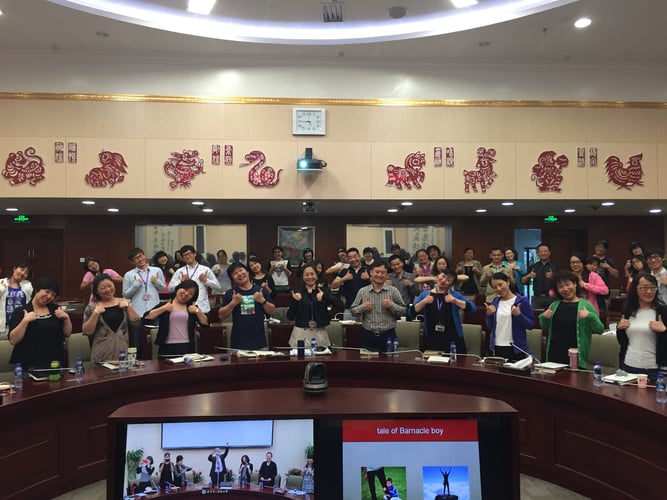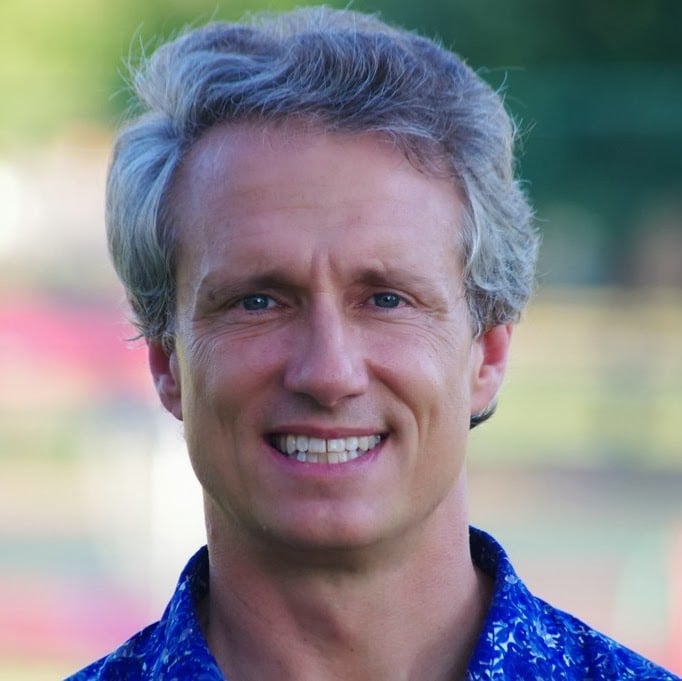Last summer, we had an incredibly unusual opportunity arise.
A group of educators from China that we met at the National Conference of the American Camp Association came to camp and invited us to join in an effort to bring “camp education” to China.When I say “us”, I mean Scott Brody (a fellow camp director who runs a camp in New Hampshire), Susie Ma’am and me.
This group has close ties with the Chinese Ministry of Education and is convinced that the Chinese education system is deeply flawed and is harming their children.
Many of us in the US look at China and its education system with envy and concern – they are outperforming us on math and science tests, they attend more days each year and they attend for longer each day. Their students seem to study more. American parents worry that Chinese students will “pass” American students.
Ironically, the Chinese I have met feel entirely differently. They are envious of the American education system. Where we see our education system as one that lags in math scores, they see once that produces entrepreneurs and innovators.
The Chinese are aware of the fact that they are the largest country in the world, but they have not produced a Steve Jobs, Mark Zuckerberg, or Bill Gates.
In his book “World Class Learners” Oregon professor Yong Zhao points out that countries with high PISA (Programme for International Student Assessment) math scores have low levels of entrepreneurial activity as measured by the Global Entrepreneurship Monitor.
Earlier this year, I flew to Eugene, Oregon to meet with Yong Zhao. Liz Fogel, the head of worldwide education for Disney had introduced us late last year and we shared an interest in other non-school forms of afterschool and summer enrichment.
Prof. Zhao puts it simply, “China needs fewer recitals and more talent shows – they need fewer days in the classroom and more in nature or at camp.”
He believes that education needs to foster creativity, teamwork and a comfort with failure. Education systems that relay heavily on high-stakes testing typically do not do this. Instead, they teach a particular area of knowledge like biology or geometry, focus on individual rather than group work and generally lead to a fear of failure.
Please do not get me wrong, I am a HUGE believer in education. Susie and I encourage our children to apply themselves and learn as much as possible. But we know that school is not enough.
In many ways, camp is a perfect complement to school. Where school generally creates a fear of failure, camp gives each child the ability to try new things without fear of long term consequences. As Dr. Michael Thompson says in his book “Homesick and Happy”, if your child misses the target, fails to get up on skis or does not reach the top of the climbing wall, it does not end up on his or her permanent record. In fact, at camp failure leads to success in most cases, as counselors and peers encourage campers to build confidence and try again.
Camp teaches teamwork and collaboration rather than focusing on individual work and achievement. It teaches children about dealing with failure. Through opportunities for outdoor learning, creative play, and more, camp also cultivates creativity and innovative thinking.
For these reasons, a growing number of Chinese are looking at “camp education” as a supplement to their rigid school system.
I have visited multiple times and spoken at multiple occasions. Scott and I were keynotes at the Inaugural China Camp Education Conference. 5 weeks ago, I spoke at the Experimental School, one of only two schools run directly by the Ministry of Education (see picture below). After meeting with many of the experts in China, Yong Zhao and several US-based educators, I have come to think of education as a three-legged stool.

The first (and most important leg) is “parent education”. Parents instill values, build confidence and craft internal narratives that help their children approach the world.
The second leg is “school education”. We must learn language, math skills, basic science and learning strategies.
But the third leg is often missing. Luckily, if you are reading this, you likely have already incorporated it into your child’s life: “camp education”. Camp education 1) is away-from-home, 2) is filled with positive and engaged adult role models, 3) provides multiple opportunities to try new activities and ideas (and practice succeeding and failing) and 4) provide a rich environment to develop the interpersonal skills that are critical to success in life.
Of course, “camp education” can include some elements that are not camp – a great sports program with a loving a validating coach, a theater program with engaged adults or a mentoring program can also serve a similar role.
But I believe that the benefits of summer camp are clear to anyone who has participated. It is the ideal combination of elements to complement parent education and school education.
Steve Sir
Want more like this? See: http://blog.campchampions.com/chinese-education-summer-camp-in-china


